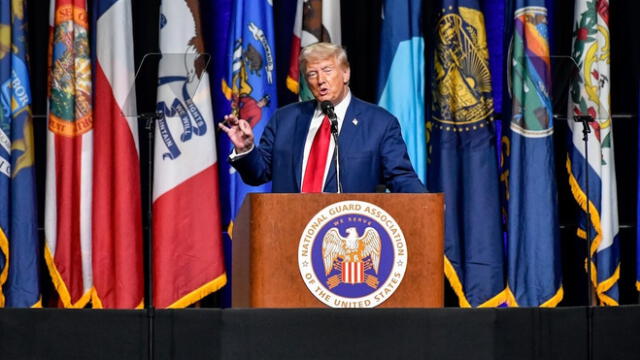Trump urges Europe to bolster defense after years of Biden’s inaction, says baltic official
A major shift is unfolding in European defense strategy, with leaders now taking urgent steps toward military reinforcement. What prompted this sudden change, and how is the United States influencing the process?

President Donald Trump has pressured European nations to strengthen their military capabilities after what officials describe as years of inaction under the Biden administration. Lithuanian defense policy chief Vaidotas Urbelis emphasized the need for urgency, warning that Russia only responds to pressure.
During a recent emergency summit in Brussels, European leaders acknowledged their responsibility for regional security. Lithuania, alongside other Baltic countries, has already pledged to increase military investments, marking a pivotal moment in NATO’s evolving plan.
Why is Europe accelerating its military buildup?
European states, particularly those bordering Russia, are rapidly increasing their defensive spending. Lithuania committed to allocating up to 6% of its GDP for military funding by next year, making it the first NATO territory to meet Trump’s proposed 5% threshold. “Everyone understands the threat, but what has changed is the urgency,” Urbelis remarked.
Despite these financial commitments, challenges remain. The combined army budgets of the Baltic states total just $5.2 billion, a fraction of the cost of an American aircraft carrier. “If we’re still below 2% [of GDP], that’s not serious,” Urbelis cautioned, stressing the importance of meaningful investments.
Can Europe present a united front against Russia?
Baltic and Nordic nations have responded swiftly to raised hostilities, yet unity remains essential for NATO’s success. “Russia’s strategy is to divide the alliance,” Urbelis warned. He pointed out that military and economic strain must be applied collectively to counter Russian influence effectively.
Defense Minister Dovilė Šakalienė echoed this sentiment, stating, “You cannot negotiate with Moscow like a normal partner.” According to Urbelis, concessions are seen as weakness, making a strong, coordinated stance the only viable approach. The coming months will determine whether Europe fully embraces this shift in military policy.












